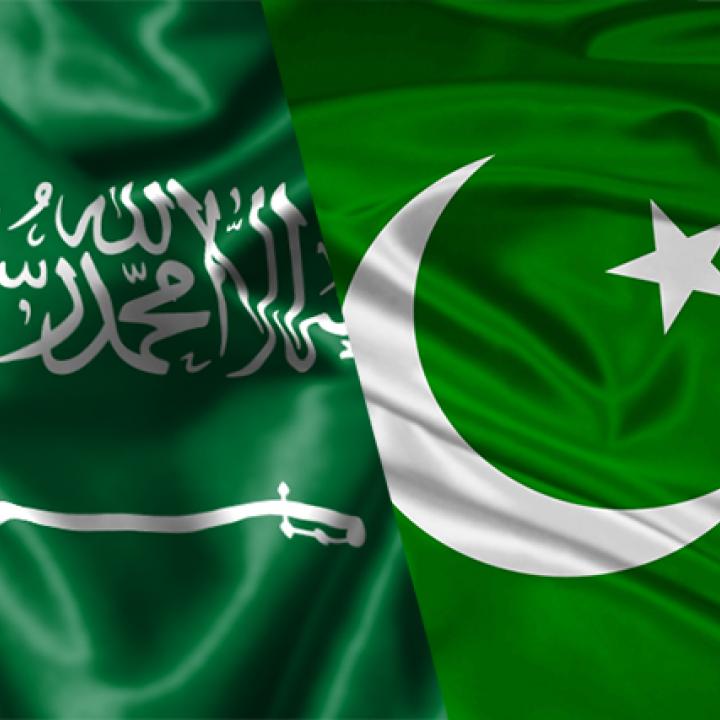On April 24, Iranian president Ebrahim Raisi left Pakistan after a three-day business-focused visit to Islamabad, Lahore, and Karachi. His principal host was Prime Minister Shehbaz Sharif, but he also met with Chief of Army Staff Gen. Asim Munir, who wields ultimate power in Pakistan.
On April 23, reporters asked State Department spokesman Vedant Patel about the visit, prompting a careful response: “Broadly, we advise anyone considering business deals with Iran to be aware of the potential risk of sanctions. But ultimately, the government of Pakistan can speak to their own foreign policy pursuits.” Unmentioned was the historical nuclear connection between the two countries: Iran’s uranium enrichment plants and weaponization know-how stem from the proliferation efforts of the late Pakistani scientist A. Q. Khan in the 1980s and 1990s.
At the moment, Islamabad seems most anxious to revive an Iranian natural gas supply project that has been delayed by sanctions. This deal would involve construction of a pipeline stretching from Iran’s giant offshore South Pars field to Karachi, Pakistan’s largest city. Overall, Raisi’s visit reportedly resulted in $10 billion worth of bilateral deals to be completed over the next ten years; a joint statement noted that a free trade agreement would be “expeditiously finalized” as well.
In addition, the two leaders were expected to discuss the tit-for-tat exchange of fire across their mutual border in January, though it is unknown if anything substantive was said about the matter. Tehran has previously accused Pakistan of giving sanctuary to Iranian opposition militants.
Similarly Mixed Context for Saudi Diplomacy
The Iranian visit came just a few days after two key Saudi visits: Foreign Minister Faisal bin Farhan traveled to Islamabad with the aim of “enhancing bilateral economic cooperation,” followed by Deputy Defense Minister Talal al-Otaiba, who spent two days in Pakistan meeting with top military commanders “to finalize defense-related bilateral projects.” And just three weeks earlier, Defense Minister Khalid bin Salman, a younger brother to Crown Prince Muhammad bin Salman (aka MbS), was the guest of honor at Pakistan’s annual military parade, which included nuclear-capable missiles. Notably, the United States announced sanctions on April 19 targeting four suppliers to Pakistan’s ballistic missile program: three in China and one in Belarus.
Policymakers may hear historical echoes in the latter visits. During the 1970s and 1980s, Pakistan received Saudi financial backing to develop nuclear weapons, with the assumption that Pakistani missiles would give the kingdom a “nuclear umbrella.” These secret understandings have seemingly been renewed after each change in leadership in both countries. Most recently, General Munir spent several days in the kingdom immediately after Prime Minister Sharif came to power last month, meeting with MbS and other top officials.
Economics Overshadow Any Gaza Content
Although it is tempting to view all these visits in terms of the ongoing Gaza crisis and Iran’s recent escalation with Israel, the agendas for each trip were presumably planned months in advance. Pakistan’s troubled economic situation still appears to be the main driver. Next week, Sharif is expected to visit Saudi Arabia for the second time in a month “to advance investment talks.” During his first trip, he performed a pilgrimage to Jeddah and Mecca, then met with MbS to discuss a planned $5 billion investment package. Pakistani media also report that MbS will visit Pakistan soon, though this may be a premature interpretation of Riyadh’s formal acceptance of the invitation.
Islamabad’s continuing tensions with nuclear rival India are likely driving some of this diplomacy as well. While campaigning for reelection, Prime Minister Narendra Modi has been accused of peddling anti-Muslim tropes, infuriating India’s Muslim neighbor. Moreover, Sharif’s brother—former prime minister Nawaz Sharif—is currently on a five-day “private” visit to China, Pakistan’s principal trading partner and India’s strategic rival.
A further twist is that the late Dr. Khan also had close ties with Saudi Arabia, making multiple visits there in addition to his known proliferation activities with Iran, Libya, and North Korea. Accordingly, the wider Middle East will be wondering where all this diplomacy fits in with Washington’s reported willingness to supply Riyadh with uranium enrichment technology as part of a larger diplomatic deal for Israeli-Saudi normalization.

